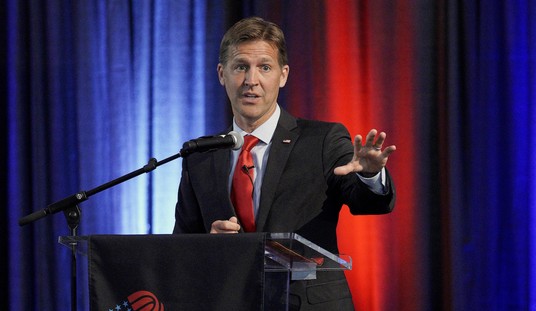It certainly is not news, per se, that ObamaCare is imposing a whole raft of complex, costly new rules and regulations upon smaller businesses that are going to have to seriously struggle to summon the resources to cope with them, but the Washington Post‘s latest piece on the subject highlights an as yet little noticed set of specific rules that are really going to bring the pain on the business models employed by small owners and entrepreneurs across the country. There’s been plenty of discussion about the disincentives surrounding the 50-employee threshold above which employers must either provide health insurance to their workers or else pay a hefty penalty, but for the purposes of ObamaCare, even several completely separate small businesses can be lumped into the larger-businesses category if they share a single owner and the number of workers tally over 50. It’s going to get complicated:
“We, like most of the operators we know, participate in multiple restaurant entities, with various partners, often with family members” Winstanley said during a recent hearing before the House Small Business Committee. “Though we consider each operation to be a small business, many of us are discovering that for the purpose of the health care rule, all of the businesses must be considered a single employer.” …
Often overshadowed by rules concerning the number of hours that constitute full-time employment or the number of workers that define a small business, the aggregation rules pose an addition compliance headache for a large number of small business owners. In fact, roughly four out of 10 small firms with at least 20 employees are run by employers who own at least 10 percent of at least one other company, according to research by the National Federation of Independent Business.
Due to the complicated nature of the rules, many of those firms will be forced to hire a tax attorney to determine their size status under the law, according to Debbie Walker, a Washington accountant who testified at the hearing.
Winstanley estimates that could cost him upwards of $10,000 — and that’s just for the legal counseling. Should he indeed be forced to expand his health care plan to every one of his companies (he already offers care at some firms), he says his current business model may no longer work, and he and his brother will think twice about adding new restaurants.
ObamaCare’s proponents just adore talking about how ObamaCare is really, totally, seriously “creating jobs,” which, in the most literal and technical sense, it most certainly is — but at what opportunity cost? Sure, a bunch of businesses need to hire specialized accountants and attorneys and lobbyists now, but those resources could be and would be better and more productively spent elsewhere rather than diverting them into regulatory compliance.
In related and similarly unsurprising news, Bloomberg reported last Friday that the White House was well aware the the small-business-centric exchanges they once so confidently trumpeted wouldn’t be ready even remotely on time, but chose to withhold that information from the general public for just about as long as they could manage it. Just another casual day in the life of the Most Transparent Administration, Evah.
The decision to delay the Obamacare health exchange for small businesses was withheld from the public for at least six weeks, according to internal e-mails released by a congressional committee investigating the rollout.
CGI Group Inc., responsible for getting the insurance shopping site for small business open Oct. 1, told the Obama administration in August the marketplace wouldn’t be completely ready until at least Nov. 15, according to documents released today by Republicans on the House Energy and Commerce Committee.
The administration was still saying publicly as late as Sept. 26 that the Small Business Health Options Program was on schedule. A news release that day by the Department of Health and Human Services said the SHOP exchange would open Oct. 1.
“We see more and more evidence that the administration was fully aware its signature health care law was not ready for prime time,” Representative Fred Upton, the committee chairman and a Michigan Republican, said in a statement.








Join the conversation as a VIP Member